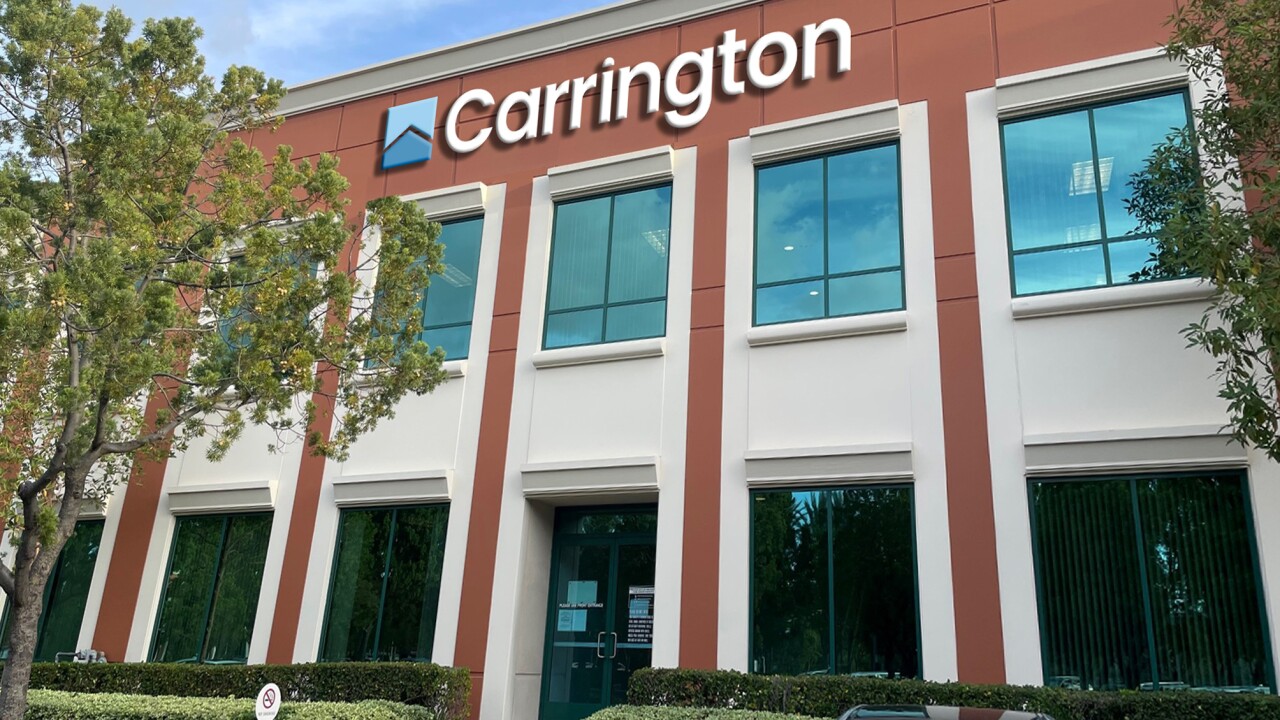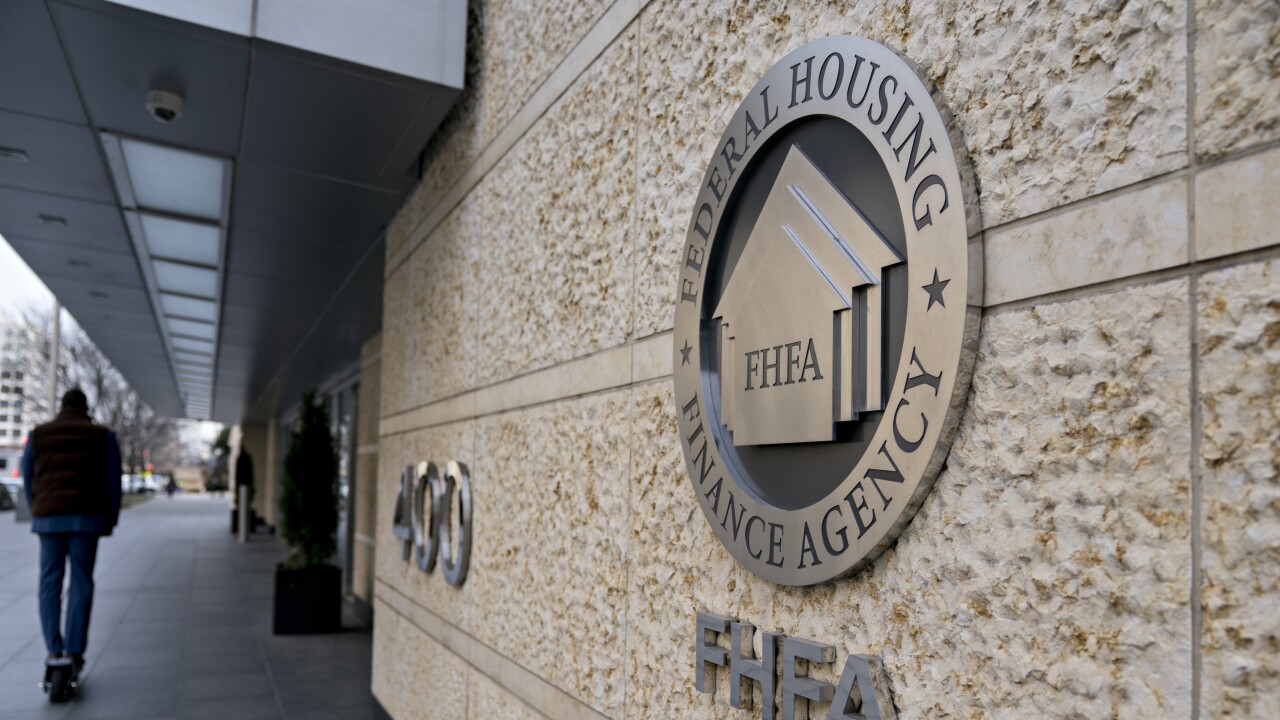-
The products are currently limited to a single distribution channel, but the company hasn't ruled out offering them through third-party originators in the future.
December 7 -
Deterioration in credit quality should put strain on collateral originated in late 2021 and early 2022, affecting performance, Barclays Credit Research said.
December 6 -
Higher inflation and mortgage rates led to the increased likelihood that conforming loans originated in the three months ended Sept. 30 would go 180 or more days delinquent, Milliman found.
December 5 -
The company is in the final stages of its exit from this part of the MSR market.
December 5 -
The pushback the government insurer faced over the revised standards led it to delay deadline for implementation by a full year, to December 31, 2024
December 5 -
These types of transactions largely disappeared from the market for years after the Great Recession.
December 2 -
Measures related to how interchangeable their mortgage-backed securities are have drawn more focus since July when the Federal Housing Finance Agency added a fee that some fear could upset the balance.
December 1 -
The deal creates a secondary market and securitization outlet for the Ohio-based lender, which reportedly is the buyer of Angel Oak Home Loans.
December 1 -
Prime mortgage activity fell notably while nonprime deals and government-sponsored enterprise credit risk transfers increased in 2022, according to Kroll Bond Rating Agency.
November 30 -
The increased limit on the size of the mortgages the government-sponsored enterprises will be able to buy reflects the year-over-year change in home prices.
November 29 -
The increases set to go into effect in February help some offset breaks for first-time buyers but also limit options for existing borrowers.
November 28 -
However, a tiered pricing system will limit an inflation-driven increase to under 10% for a small group of originators.
November 28 -
While Bids Wanted in Competition have been used by MBS sellers in the past, a lack of standardization of data points has reduced competition and price, the organization said.
November 23 -
Nonbanks will probably see the least change, while securitization lenders, depositories and REITs are likely to experience the most, an Urban Land Institute survey suggests.
November 22 -
Mortgage bonds are close to the cheapest they've been since the financial crisis by some measures, and money managers like Pacific Investment Management Co. are betting that prices have fallen far enough to make the securities a great buy now.
November 22 -
Two vendors have added non-agency mortgage and co-issue servicing sales respectively, and a government agency has confirmed that it's working on overcoming a hurdle to more scalable eNote use.
November 21 -
However, the downturn will be brief and housing will lead the way out, the government-sponsored enterprise concluded.
November 21 -
Scores will be assigned to all loan pools created since 2010, including future securitizations, and are expected to help investors determine the share of mortgages meeting specific characteristics.
November 18 -
The 15-year fixed-rate mortgage saw an average rise of 6 basis points that was higher than the overall gain, according to a retrospective report issued Wednesday.
November 16 -
The agency failed to fulfill some watchdog recommendations and get reports related to "human capital" and diversity finalized, the annual analysis found.
November 16















